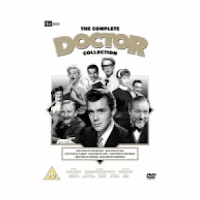 Thanks for all the emails that keep arriving, it's brilliant to see that someone reads this. Do leave me a comment if you visit - makes my day every time!
Thanks for all the emails that keep arriving, it's brilliant to see that someone reads this. Do leave me a comment if you visit - makes my day every time!The main thing I keep getting asked is :
1. What made me want to change from nursing to medicine
2. Has my nursing background helped since moving to medicine
I will answer the first question soon, but have to say that as far as the second question goes, my nursing background has not helped me in the slightest.
In my humble opinion, nursing and medicine have little in common. I never thought this to start with - I presumed that I would be half way to being a doctor with my nursing degree and twelve years experience but this just is not the case.
I was a 1992 "Project 2000" nursing student, a course which was criticised for being too academic and not clinical enough. For the first 18 months we were classroom based, studying sociology, psychology and physiology.
For the first 18 months in medical school, we studied biochemistry, genetics, histology, epidemiology, cell biology, pharmacology (None of this was covered in any fashion as a student nurse) and clinical modules such as MSK, CVS, nephrology, GI etc. We spent 12 weeks on each module, starting with the biochemistry of each clinical subject and working up to pathological processes.
After three years I have realised that thinking that nursing was going to give me a leg up the medical ladder was very, very wrong.
Nurses and Doctors are like plumbers and electricians. They both work in the same environment and are specialised in what they do. They cannot do each others jobs, simply because the jobs are different. By them doing their different jobs and sticking to what they know best, the house gets built.
If the plumber is off sick, the electrician can't cover their job. I don't think doctors could cover the nurses job any better than a nurse could cover a doctor's.
To wander off the trail a little, I think one problem is that although the jobs are completely different, there are tasks within each role that cross over (Bloods, interpreting spirometry, cannulation etc) Over my twelve years in nursing, I saw the boundaries between nursing and medicine blur, as the managers realised that nurses were not only cheaper, but could so some of the doctors tasks (I have trundled on about this here)
In my old job in occupational health, this quickly lead to a reduction in the docs hours as managers assessed which parts of their roles could be sliced off and handed to the nurses. Then, lo and behold, the same managers realised that "Technicians" were cheaper than nurses. Hey great - lets shave the nurses role (Presumably so that she could do some of the docs job) and pay the technicians half of what the nurse earns. Don't think I am exaggerating here, over a period of five years, the doctor's hours reduced from 5 a week to 4 a month and when one of the OH nurses left, she was replaced with a fork lift truck driver who had taken a OH technicians course at Carmarthen college)
To get back to the original subject, I will be interested to see if my view changes in my last 18 months as a medical student, but so far nursing just hasn't helped me as a medical student.






